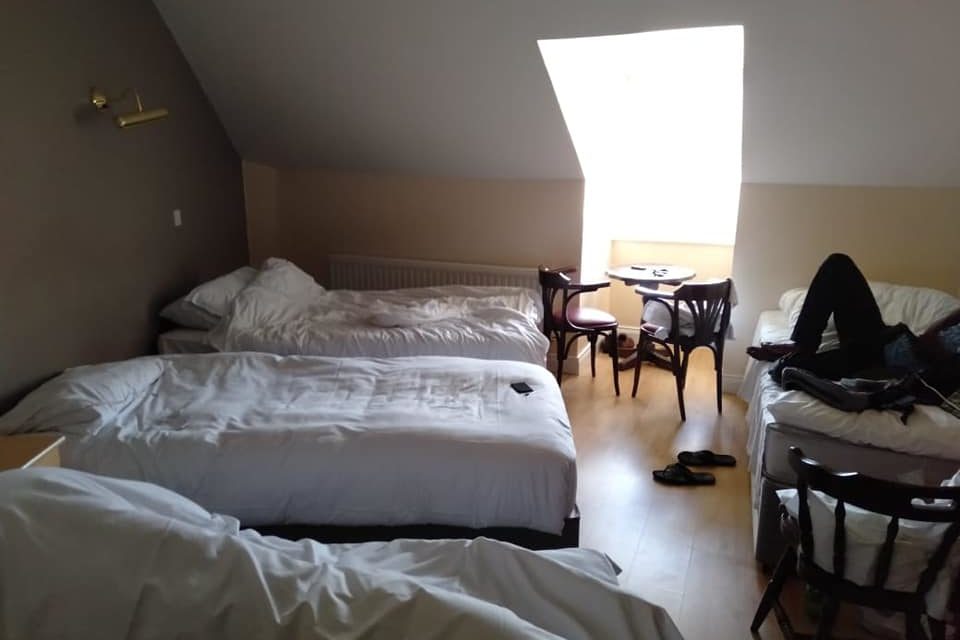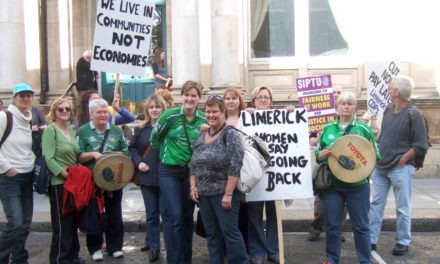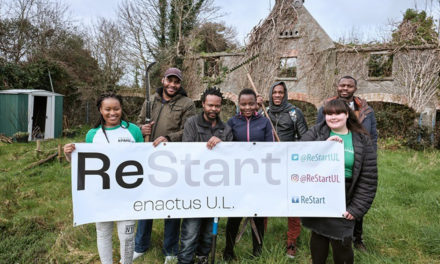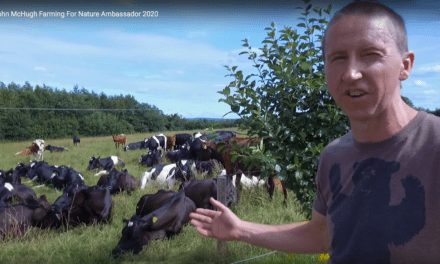Weekly payments given to families in direct provision provide less than half of what is needed for the minimum essential standard of living, according to new research.
The Children’s Rights Alliance has now renewed its call for the Government to prioritise an increased child payment for children in the direct provision system in Budget 2024.
Children’s Rights Alliance CEO Tanya Ward recalled the McMahon Report in 2014, which contained recommendations on improvements to the direct provision system.
“We really needed to fight to get the recommendation that children would be on €29.80 per week. And the concern was ‘We’ll have more people arriving because it’s €29.80’. International research on why people seek protection shows that they’re not the reasons that people rely upon.
“Just because we increased the rates, it didn’t result in an increase in people coming into the country. You have to focus on: ‘What’s the right thing?’. It’s not right that children in direct provision are the only group of children that were left behind in Budget 2023. Budget 2024 can’t do the same,” she said.

– Tanya Ward, Children’s Rights Alliance CEO
©Photo by Derek Speirs
St Vincent de Paul’s MESL (Minimum Essential Standard of Living) Centre carried out a study looking at the average weekly cost of more than 2,000 essential goods and services.
Taking into account the costs that are already provided by the system, researchers found that the estimated weekly MESL need for a one-parent family with two children is €228.30. However, the weekly payments currently only amount to €110.80, 49% of the minimum income needed.
For a two-parent family with two children, the weekly MESL need is €289.98. Current payments only cover 52% of this, a shortfall of €140.37 every week.
Researcher Hannah Boylan of the Vincentian MESL Centre described the MESL amounts as “the minimum required for people to live with dignity and participate in day-to-day life, that no one should be expected to live below”.
She added that due to the scale of the inadequacy of the payment it is “inevitable that families living in direct provision are going without goods and services that people need to live and participate in Irish society”.
Princess Graham (18) a social studies student, and member of Irish Refugee Council youth group came to Ireland as an unaccompanied minor aged 17.
She said: “I had to wait four months before I started receiving the weekly allowances. Those four months were a terrible time for me. I struggled to get necessities. I am grateful to be getting it every week, but it is still not enough. We find it hard to manage, between buying mobile data, transport, food, clothes, toiletries, etc. And the cost of living and inflation is not making things easier. Sometimes I don’t even have lunch. I go to college every day, sometimes I don’t eat until I come home because I don’t have the money.”
Beth Kinua, a parent and direct provision resident who now works for County Kildare Partnership on a CE scheme commented: “We are not complaining about what we get. We are only saying how inadequate it is and the fact that if you’re in Ireland for less than six months, then by default you can’t work, so you have to depend on the government subsidies.
“The cost of living today, people who are living outside direct provision are getting the boosts (cost of living payments). The people who are living in direct provision are not getting that. They still get the same payment, despite the high cost of living.”
The Government White Paper to End Direct Provision was published in February 2021. It included a commitment to the introduction of a payment similar to child benefit for children in direct provision.
It also stated that people would be moved out of reception centres within four months, to be housed within the community.
Referring to the cost-of-living crisis and the increased numbers of people seeking international protection, Ms Ward remarked that “what was envisioned in the White Paper is going to be very difficult for the Government to deliver in the short term”.
“The Department of Children (Equality, Disability, Integration and Youth) are overwhelmed, to be honest. They’re churning through people, trying to find accommodation leads, particularly trying to respond to the needs of the Ukrainians arriving, but also to the needs of people in the International Protection System. I think the Department is carrying too much in relation to that. This should be a whole Government approach. You can’t expect one department to carry the burden for this.”





